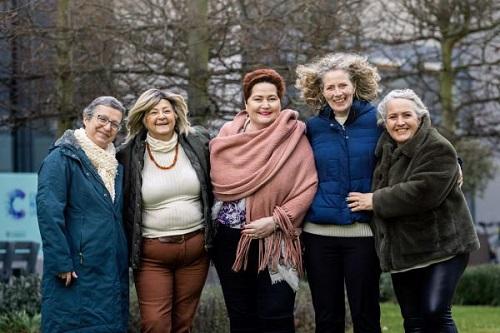That is the ambition of researchers and doctors who have launched a study with Addenbrooke’s patients that involves harnessing the power of “integrated cancer medicine”.
It involves using the latest machine learning technologies to pull complex patient data - such as imaging scans, digital pathology, genomic information, and advanced blood tests from multiple sources – all into one convenient place.
The advantage is that clinicians across different disciplines and in different places will have more meaningful information at their fingertips, and be better placed to tailor treatment to individuals, and predict the response.
The application has the potential to put Cambridge Cancer Research Hospital, which is one of 40 the Government wants to build across England by 2030, at the vanguard of latest treatments and improve cancer treatment in the UK and abroad.
It is being developed by the University of Cambridge, Cambridge University Hospitals NHS Foundation Trust and GE Healthcare with the help of patients with ovarian and other hard to treat cancers, with ambitions to broaden this out to other cancers in the future.
The work is part of a wider research programme at the University of Cambridge’s Mark Foundation Institute for Integrated Cancer Medicine (MFICM), which includes work on breast, renal, pancreatic cancer and patients with high-grade B cell lymphoma. The research is funded by The Mark Foundation for Cancer Research and Cancer Research UK.
Professor of oncological imaging in the university’s Department of Radiology, Evis Sala, said:
“The combined expertise and resources being deployed to help fight cancer in Cambridge offers real promise for improving the way we manage the disease in our NHS in the years to come.
“The University of Cambridge along with its industry partners and the life sciences community here will help the UK lead the world in the research and treatment of a variety of cancers”
Senior group leader at Cancer Research UK and Professor of ovarian cancer medicine in the university’s Department of Oncology, James Brenton, added:
“The cure rate for women with ovarian cancer regrettably remains very low.
“Bringing together complex data with machine learning techniques means clinicians will be able to make better decisions for patients, not just in Cambridge but by sharing the model with other hospitals, across the UK.
Pictured, left to right, are members of the Ovarian Cancer Patient Research Group at the CRUK Cambridge Centre - Panagiota, Margaret, Lorraine, Fiona and Melanie. Picture: StillVision Photography
